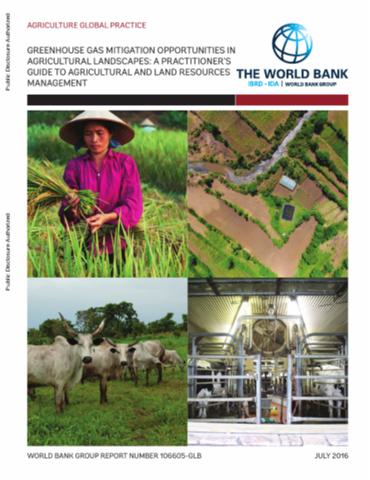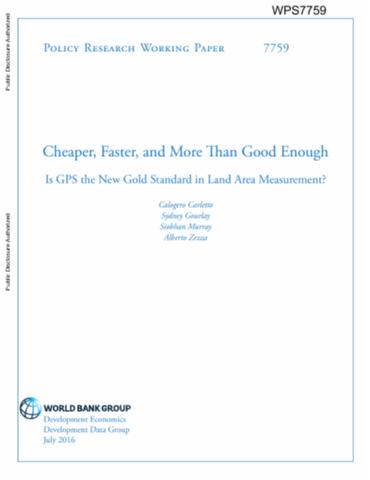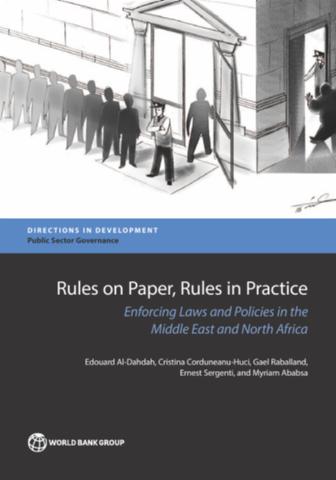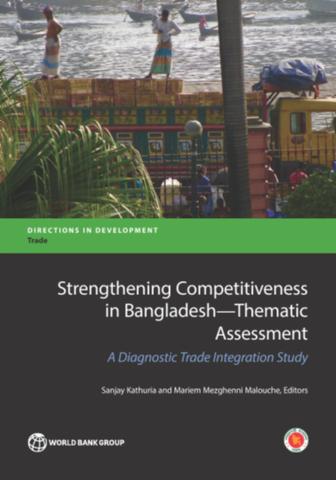The World Bank is a vital source of financial and technical assistance to developing countries around the world. We are not a bank in the ordinary sense but a unique partnership to reduce poverty and support development. The World Bank Group has two ambitious goals: End extreme poverty within a generation and boost shared prosperity.
- To end extreme poverty, the Bank's goal is to decrease the percentage of people living on less than $1.25 a day to no more than 3% by 2030.
- To promote shared prosperity, the goal is to promote income growth of the bottom 40% of the population in each country.
The World Bank Group comprises five institutions managed by their member countries.
The World Bank Group and Land: Working to protect the rights of existing land users and to help secure benefits for smallholder farmers
The World Bank (IBRD and IDA) interacts primarily with governments to increase agricultural productivity, strengthen land tenure policies and improve land governance. More than 90% of the World Bank’s agriculture portfolio focuses on the productivity and access to markets by small holder farmers. Ten percent of our projects focus on the governance of land tenure.
Similarly, investments by the International Finance Corporation (IFC), the World Bank Group’s private sector arm, including those in larger scale enterprises, overwhelmingly support smallholder farmers through improved access to finance, inputs and markets, and as direct suppliers. IFC invests in environmentally and socially sustainable private enterprises in all parts of the value chain (inputs such as irrigation and fertilizers, primary production, processing, transport and storage, traders, and risk management facilities including weather/crop insurance, warehouse financing, etc
For more information, visit the World Bank Group and land and food security (https://www.worldbank.org/en/topic/agriculture/brief/land-and-food-security1
Resources
Displaying 256 - 260 of 4907Greenhouse Gas Mitigation Opportunities in Agricultural Landscapes
Agriculture, and the patterns of land-use change that are associated with it, have a significant ecological footprint, including the effects it has on climate change, accounting for about one-quarter of anthropogenic greenhouse gas (GHG) emissions globally. Yet agriculture is also the only economic sector in which opportunities are present to mitigate climate change, mainly by removing substantial volumes of carbon from the atmosphere and sequestering them in soils and plant tissues. This report synthesizes information on the many areas in which agricultural GHG emissions can be reduced.
Cheaper, Faster, and More Than Good Enough
In rural societies of low- and middle-income countries, land is a major measure of wealth, a critical input in agricultural production, and a key variable for assessing agricultural performance and productivity. In the absence of cadastral information to refer to, measures of land plots have historically been taken with one of two approaches: traversing (accurate, but cumbersome), and farmers' self-report (cheap, but marred by measurement error). Recently, the advent of cheap handheld GPS devices has held promise for balancing cost and precision.
Rules on Paper, Rules in Practice
The primary focus of this book is on a specific outcome of the rule of law: the practical enforcement of laws and policies, and the determinants of this enforcement, or lack thereof. Are there significant and persistent differences in implementation across countries? Why are some laws and policies more systematically enforced than others? Are “good” laws likely to be enacted, and if not, what stands in the way? We answer these questions using a theoretical framework and detailed empirical data and illustrate with case studies from Morocco, Tunisia and Jordan.
Strengthening Competitiveness In Bangladesh—Thematic Assessment
This is volume 2 of a three-volume publication on Bangladesh’s trade prospects. Bangladesh’s ambition is to build on its very solid growth and poverty reduction achievements, and accelerate growth to become a middle income country by 2021, and share prosperity more widely amongst its citizens. This includes one of its greatest development challenges: to provide gainful employment to the over 2 million people that will join the labor force each year over the next decade. Moreover, only 54.1 million of its 94 million working age people are employed.
Country Partnership Framework for Bulgaria for the Period FY17-FY22
This program document presents the World
Bank Group (WBG) FY17-22 Country Partnership Framework (CPF)
for Bulgaria. The timing of the new CPF follows the
preparation of theSystematic Country Diagnostic (SCD)
prepared in FY15, and informs the areas and objectives ofthe
CPF in support of the WBG’s twin goals to reduce poverty and
boost shared prosperity1 for the bottom forty percent of the
population. The CPF proposes to focus WBG support in










